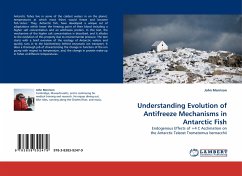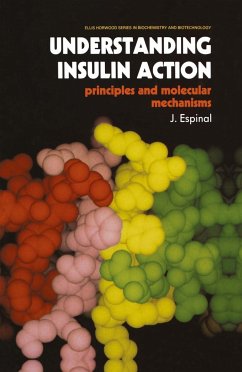
Understanding Evolution of Antifreeze Mechanisms in Antarctic Fish
Endogenous Effects of +4 C Acclimation on the Antarctic Teleost Trematomus bernacchii
Versandkostenfrei!
Versandfertig in 6-10 Tagen
32,99 €
inkl. MwSt.

PAYBACK Punkte
16 °P sammeln!
Antarctic fishes live in some of the coldest waters in on the planet, temperatures at which most fishes would freeze and become fish- sicles.' They, Antarctic fish, have developed a unique set of adaptations which lower the freezing point of their blood including a higher salt concentration and an antifreeze protein. In this text, the mechanism of the higher salt concentration is described, and it alludes to the evolution of this property due to environmental pressure. The text starts with a brief overview of the ecology of Antarctic waters and quickly runs in to the biochemistry behind enzyma...
Antarctic fishes live in some of the coldest waters in on the planet, temperatures at which most fishes would freeze and become fish- sicles.' They, Antarctic fish, have developed a unique set of adaptations which lower the freezing point of their blood including a higher salt concentration and an antifreeze protein. In this text, the mechanism of the higher salt concentration is described, and it alludes to the evolution of this property due to environmental pressure. The text starts with a brief overview of the ecology of Antarctic waters and quickly runs in to the biochemistry behind enzymatic ion transport. It does a thorough job of characterizing the change in function of the ion pump with respect to temperature, and, the change in protein make-up in fishes at different temperatures.












